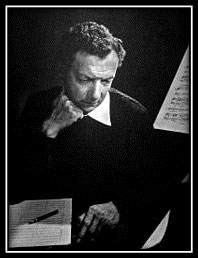This year commemorates the anniversary of two English composers: John Dowland (b. 1563) and Benjamin Britten (b. 1913). Although centuries apart, Britten was drawn to Dowland’s work as a source of English song composition and expressive musical gestures. The works If my complaints could passions move (1597) and Flow my tears (1600) are used in Britten’s Lachrymae: reflections on a song of John Dowland (1950) op. 48 for viola and piano, written for virtuoso violist William Primrose. Critics observed this work marked the beginning of a new musical direction for Britten, with its economy of style and emotional intensity. Dowland’s lute song, Come heavy sleep (1597), forms the theme for Britten’s guitar variations, Nocturnal after John Dowland (1963) op. 70, written for virtuoso classical guitarist Julian Bream. It is considered one of the most significant compositions of the guitar repertoire and explores the many moods of sleep.
Listen to Dowland and Britten recordings from Naxos Music Library:
- Lachrymae, BBC Symphony Orchestra, viola and string orchestra arrangement
- Nocturnal, Jeremy Jouve, guitar
- Come heavy sleep, Peter Croton, lute, and Theresia Bothe, vocals
- Flow my tears, Dorothy Linell, lute, and Steven Rickards, vocals
- If my complaints could passion move, Ben Cohen, lute, and Kristine Hurst, vocals
Read about the contributions of John Dowland and Benjamin Britten in Oxford Music Online.
By Lori Ricigliano, Music Liaison Librarian


It’s interesting that you should mention the significance of Britten’s Nocturnal to the guitar repertoire. As you correctly noted, it was written for Julian Bream and included in his groundbreaking recording entitled “20th Century Guitar”. In addition to the Nocturnal, pieces by Hans Werner Henze, Reginald Smith Brindle and Frank Martin (the Quatre Pieces Breves) were also included. The release of this album established Bream as the primary interpreter of modern music on the guitar and lead to significant compositions from Arnold, Berkeley, Takemitsu, Tippett and Walton. Not a bad legacy of you ask me. That recording was even the subject of a dissertation!